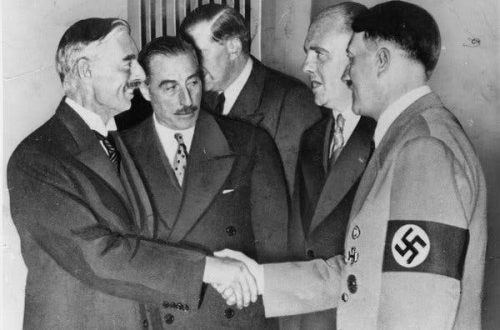This is a guest post by Michael Ezra
Yesterday this blog highlighted the fact that the Socialist Unity were promoting a Hamas fundraiser. David T, a main poster at Harry’s Place, among others, visited the Socialist Unity site and made a number of comments to the thread. Many of them were deleted either by Andy Newman or by administrators who run that site. It seemed that those with moderating capability at Socialist Unity did not like it being pointed out to them that the Hamas Covenant contains blatantly anti-Semitic language. Such language includes encouraging a belief that the notorious anti-Semitic document, The Protocols of the Elders of Zion, is truthful. Andy Newman had enough. He stated:
I am going to delete the zionist rolls from now on, they have had their chance, and you can read what a terible censor I am over at harry’s place. [Spelling and grammatical errors left in place.]
Shortly after this he closed the thread.
Precisely ten minutes after Newman’s last post to that thread, a new post appeared on the Socialist Unity blog entitled, ISRAELI CONFESSIONS. No comments are allowed to this post which contains one item, a video that had been placed on YouTube:
It immediately comes to my attention that the quote shown at 1:42 minutes into the video, one allegedly by David Ben-Gurion, is not only false, it is the exact opposite of what Ben-Gurion did say. The video states that Ben-Gurion said “We should remove all Arabs and take their place.” The sources provided for the quotes are provided on a Facebook page. Here, a longer quotation is provided where Ben-Gurion is alleged to have said:
We must expel Arabs and take their places …. and, if we have to use force-not to dispossess the Arabs of the Negev and Transjordan, but to guarantee our own right to settle in those places-then we have force at our disposal.
The primary source for this traces back to a letter that Ben-Gurion sent to his son Amos on October 5, 1937 where he defended his decision to support the Peel Commission Partition proposal. Efraim Karsh went back to the original hand written document and found that what the letter actually said was the following:
we will have to use force and will use it without hesitation though only when we have no other choice. We do not wish and do not need to expel Arabs and take their place. All our aspirations is built on the assumption – proven throughout all our activity in the Land [of Israel] – that there is enough room in the country for ourselves and the Arabs. But if we have to use force… to guarantee our own right to settle in those places – then we have force at our disposal.
This is a clear example of not only taking a quote out of context but distorting it to make it sound the opposite of what was the clear meaning. Such methodology of taking alleged quotes from Zionist leaders through history, where some may be real, some may be fabricated and some totally ripped out of all context has been highlighted by Anthony Julius. He states that “Incriminatory quotations are a staple of anti-Zionism” and goes on to say:
The practice of incriminatory quotation in political debate is … dangerous, if not … lethal. It is not, of course, confined to anti-Semitic discourse, nor is it limited to one side in the Israel-Palestinian conflict. Quotations can never be substitutes for the hard work of analysis and exposition. Even when the quotation is genuine, it is almost always made to do more work than can properly be expected of it. Certainly, no single statement, nor even some dozen or so statements, can be adequate to encompass the entire history and ideology of Zionism. The history is too complex, and the ideology too fractured, for this to be possible.
It is a lesson that Andy Newman would do well to learn.
Gene adds: The quote from Chaim Weizmann about Palestine being “a country without people” is also highly misleading. What Weizmann said in 1914 is:
In its initial stage Zionism was conceived by its pioneers as a movement wholly depending on mechanical factors: there is a country which happens to be called Palestine, a country without a people, and, on the other hand, there exists the Jewish people, and it has no country. What else is necessary, then, than to fit the gem into the ring, to unite this people with this country? The owners of the country must, therefore, be persuaded and convinced that this marriage is advantageous, not only for the [Jewish] people and for the country, but also for themselves.
Weizmann was describing the thinking of Zionists of an earlier period, not his own.
According to Diana Muir writing in The Middle East Quarterly, the famous slogan “A Land without a People for a People without a Land”– wielded so often as a weapon against Jewish Zionists– was first used in 1843 by a Church of Scotland clergyman who believed Christians should encourage the biblical prophecy of a Jewish return to the Holy Land. The phrase was not widely used by Jewish Zionists.


